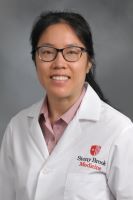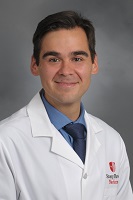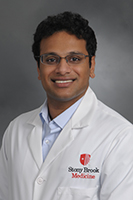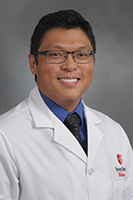Pathology Residency Training Program
New Incentive Program
The Department of Pathology has launched a new incentive program for Stony Brook medical students who are interested in becoming residents in Anatomic and/or Clinical Pathology. This will provide a payback to cover the cost of the fourth year of SBU SOM tuition (in state rate) for up to two students that are accepted to our program/year.
Selection criteria that may be considered for this award include:
• Scores on Step 1 of the USMLE that rank in the top 60th percentile or better
• Completion of Clinical Electives or ACEs in Anatomic or Clinical Pathology
• Interest and experience in laboratory based research
• Participation in the School of Medicine’s Scholarly Concentration Program
• Record of mentorship by faculty members with primary or secondary appointments in Stony Brook’s Department of Pathology
If you would like to learn more about this program, please contact the Chair of the Department, Dr. Kenneth Shroyer.
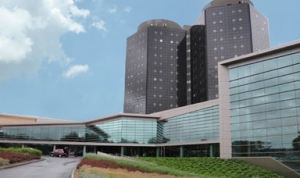 Stony Brook Medicine is the premier medical research institution in Suffolk County and a central component of Stony Brook University, one of the nation's leading public research universities. It was recently named the third most beautiful hospital in the country. Located on the grounds of the 1400-acre main campus on Long Island's North Shore, 50 miles east of New York City, the campus is home to nearly 24,000 students. It encompasses an 8,300-seat stadium, sports complex and Staller Center for performing arts.
Stony Brook Medicine is the premier medical research institution in Suffolk County and a central component of Stony Brook University, one of the nation's leading public research universities. It was recently named the third most beautiful hospital in the country. Located on the grounds of the 1400-acre main campus on Long Island's North Shore, 50 miles east of New York City, the campus is home to nearly 24,000 students. It encompasses an 8,300-seat stadium, sports complex and Staller Center for performing arts.
Program Overview
The goal of the Stony Brook Medicine Department of Pathology Residency Training Program is to provide an excellent educational experience such that program graduates possess the knowledge, skill and attitude for the successful independent practice of pathology and for the life-long pursuit of learning. Our program provides comprehensive training in anatomic pathology (AP) and clinical pathology (CP), combined or individually, as well as in research and education.
Clinical Training
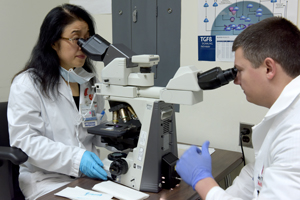
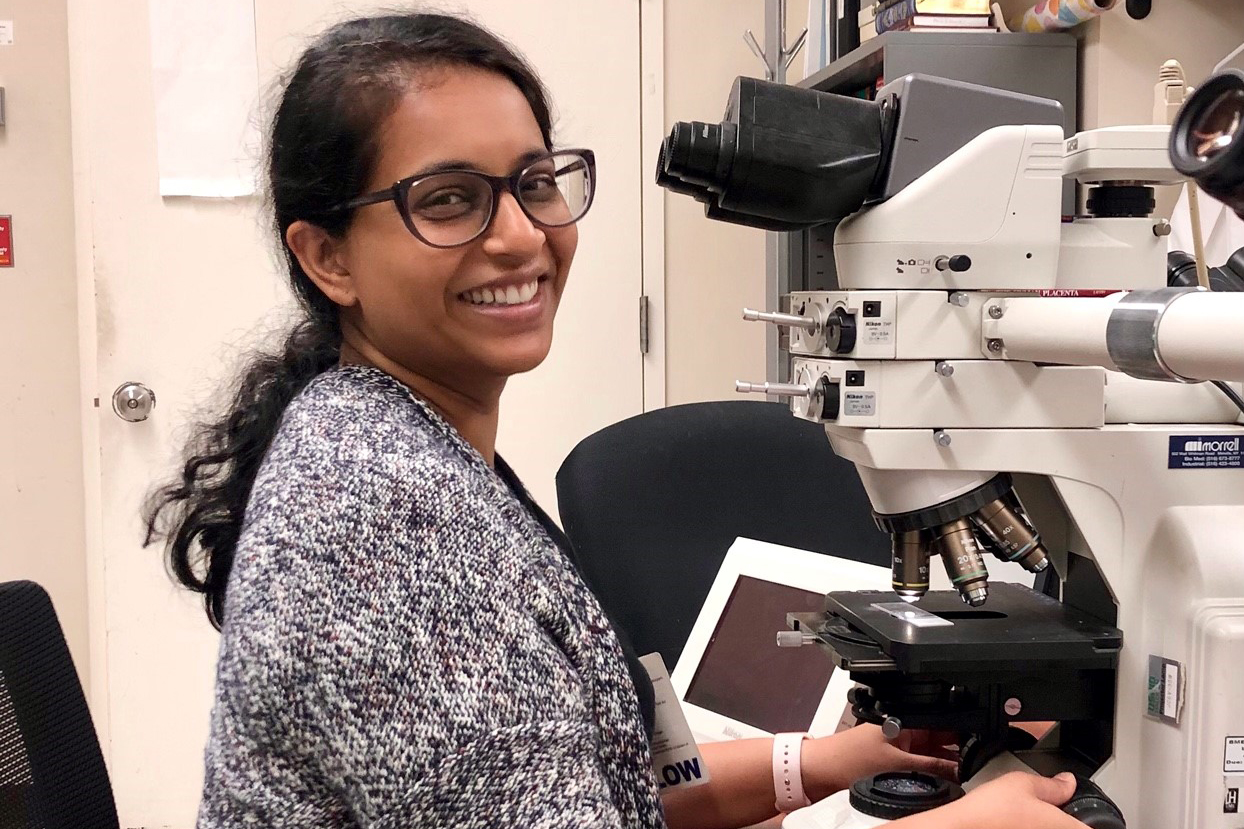
The majority of our residents choose combined AP and CP training; however, we also offer AP only and CP only training tracks. The combined AP/CP program consists of an integrated four-year program. During the first two years the residents are exposed to the major divisions of anatomic and clinical pathology. The first year focuses on AP training, including surgical pathology and autopsy, with one to two CP rotations. The second year is composed primarily of CP rotations.
In the subsequent two years the residents take advanced and elective rotations in both anatomic and clinical pathology, depending on their particular area of interest. All rotations are at SBUMC, with the exception of forensic pathology, which is at the Suffolk County Medical Examiner’s Office (generally taken during the second or third year of training).
Our AP rotations include autopsy, surgical pathology, cytopathology, and forensic pathology. There are a number of subspecialty rotations available, including dermatopathology, neuropathology, breast pathology, gynecologic pathology, gastrointestinal pathology, renal pathology, placenta-perinatal pathology, and AP lab management.
CP rotations include clinical chemistry, microbiology, hematology/coagulation, hematopathology, blood bank/transfusion medicine, immunology, cytogenetics, and molecular diagnostics.
Click here for a sample AP/CP 4 year rotation schedule.
Conferences
There are numerous conferences which complement the residents’ rotation experiences. These include didactic AP conferences, unknown slide sessions, AP interesting case conferences, CP conferences with working rounds, autopsy conferences, and journal clubs. Pathology residents also participate in departmental conferences, such as the weekly seminars in Pathology Clinical Conference, Grand Rounds, and QA meetings.
In addition to the above, there are numerous multidisciplinary conferences, including tumor boards, in which the residents actively participate in the presentation of the cases.
Pathology Faculty
Click here for a complete directory of our faculty.
Research
Research is an important component of our residency program, as well as in the discipline of Pathology overall. Our department and institution have numerous talented faculty and cutting-edge facilities to support a wide range of research endeavors, varying from bench-based to translational research studies. Each resident is required to participate in at least one significant research project before graduating from the residency program; these efforts are supported by the department in various ways, including participation in a research-related lecture series, faculty mentorship, and oversight by the Vice Chair for Research. The majority of our residents are involved in numerous projects during their training, many of which result in abstract presentations at national meetings, as well as publications.
Teaching Activities
In addition to becoming excellent diagnosticians and researchers, we feel strongly that our residents should also develop into outstanding teachers. Our residents are involved with teaching numerous groups including medical students, other residents, and members of other departments. Residents participate in small group teaching of first and second year medical students and work with third and fourth year students during departmental electives. Senior residents present and discuss findings at multidisciplinary tumor boards with faculty supervision. These teaching activities support development of expertise in various subspecialty areas as well as teaching skills.
Clinical Fellowship Opportunities
The majority of our residents pursue further fellowship training in a number of different areas. Our department sponsors four ACGME-accredited pathology clinical fellowships: Selective Pathology (Surgical Pathology), Cytopathology, Hematopathology and Pathology Informatics (click here for further information on our clinical fellowships).
Click Here to View Positions Obtained by Graduating Stony Brook Hospital Pathology Residents
Current Residents and Clinical Fellows
Our residents and clinical fellows come from diverse educational and training backgrounds; some are MDs who entered residency training directly after medical school; some are MD, PhDs who have participated in significant basic science research, while others have had careers outside of the healthcare field before attending medical school. They all have in common the desire to develop into excellent pathologists, researchers, and educators.
Pathology Residents:
PGY - 1
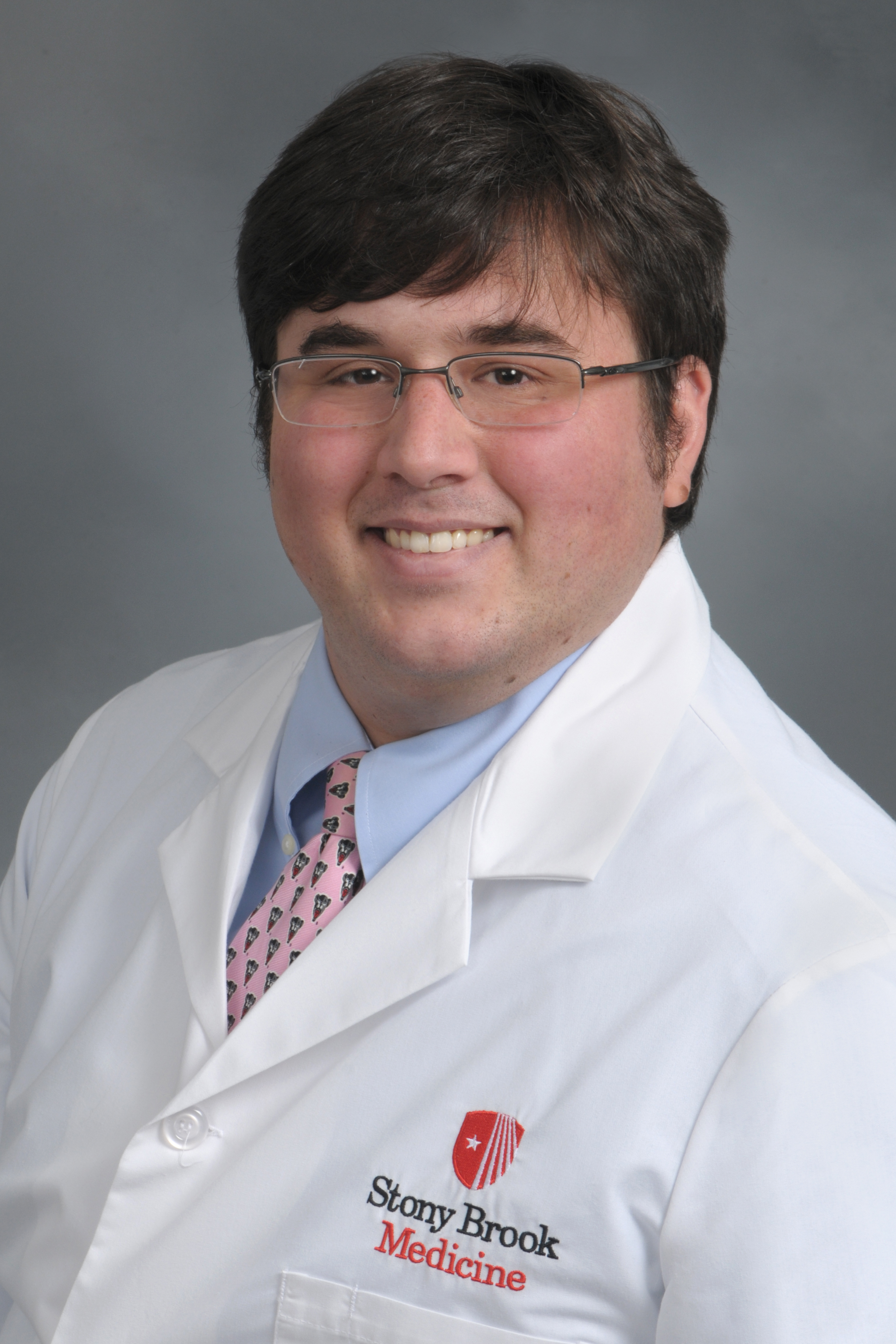
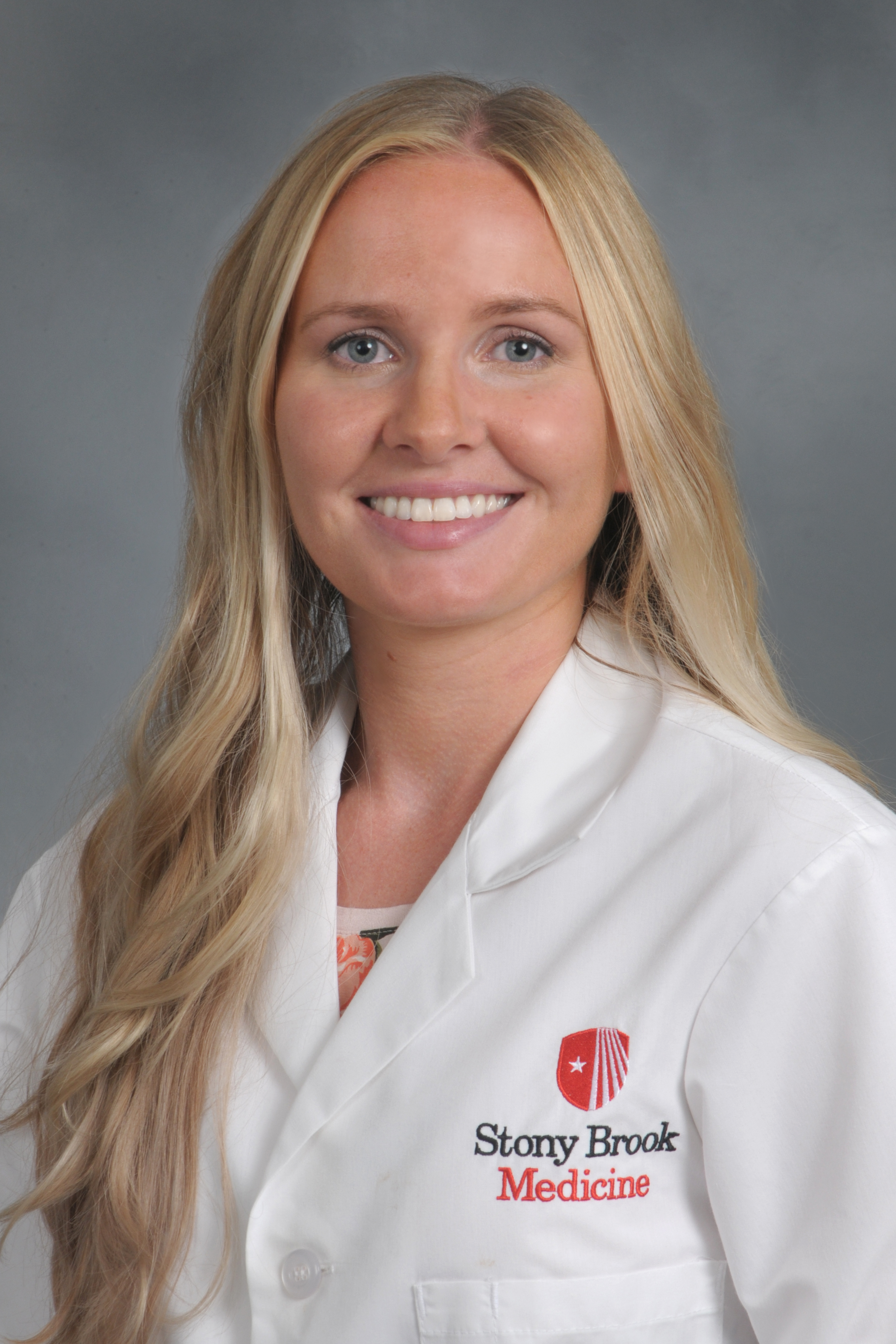
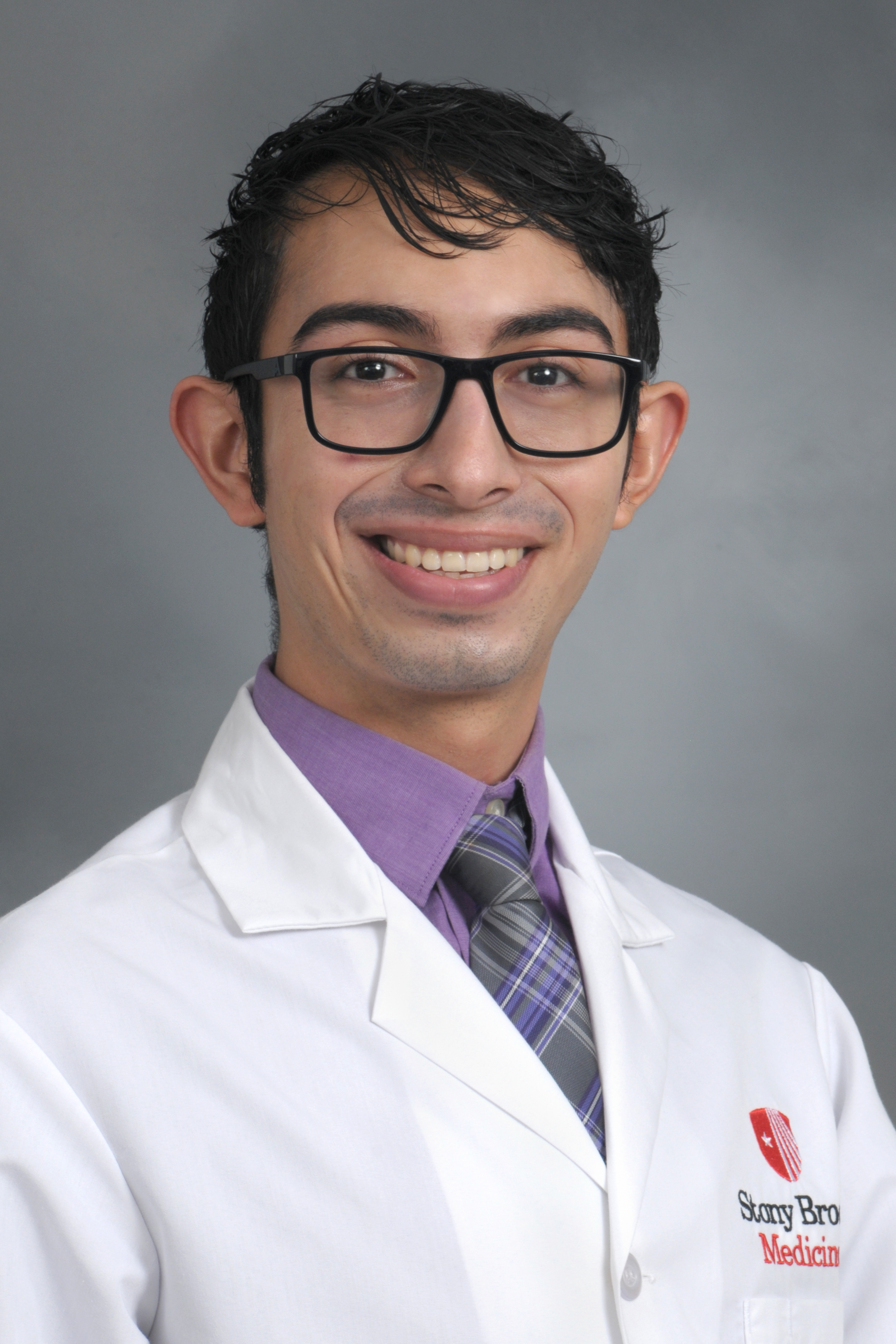
Samuel Roush, MD, MPH Sara Eide-Beardsley, DO David Barrera, MD
PGY - 2
|
Emily Huang, MD, MPH |
Artemio Zavala, MD |
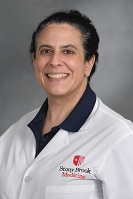 Veronica Gross, MD, PhD |
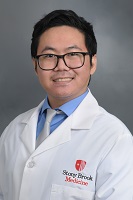 Kevin Wang, DO |
PGY - 3
|
Sashank Cherukuri, MD |
Pons Materum, MD |
Steven Adams, MD
B. Elizabeth Lee, DO
PGY - 4
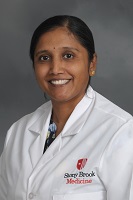 Sruthi Babu, MD, PhD |
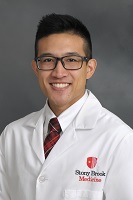 Jaymie Oentoro, MD |
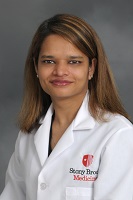 Prerna Khetan, MBBS, MPH |
Selective Pathology Fellow
PGY-5
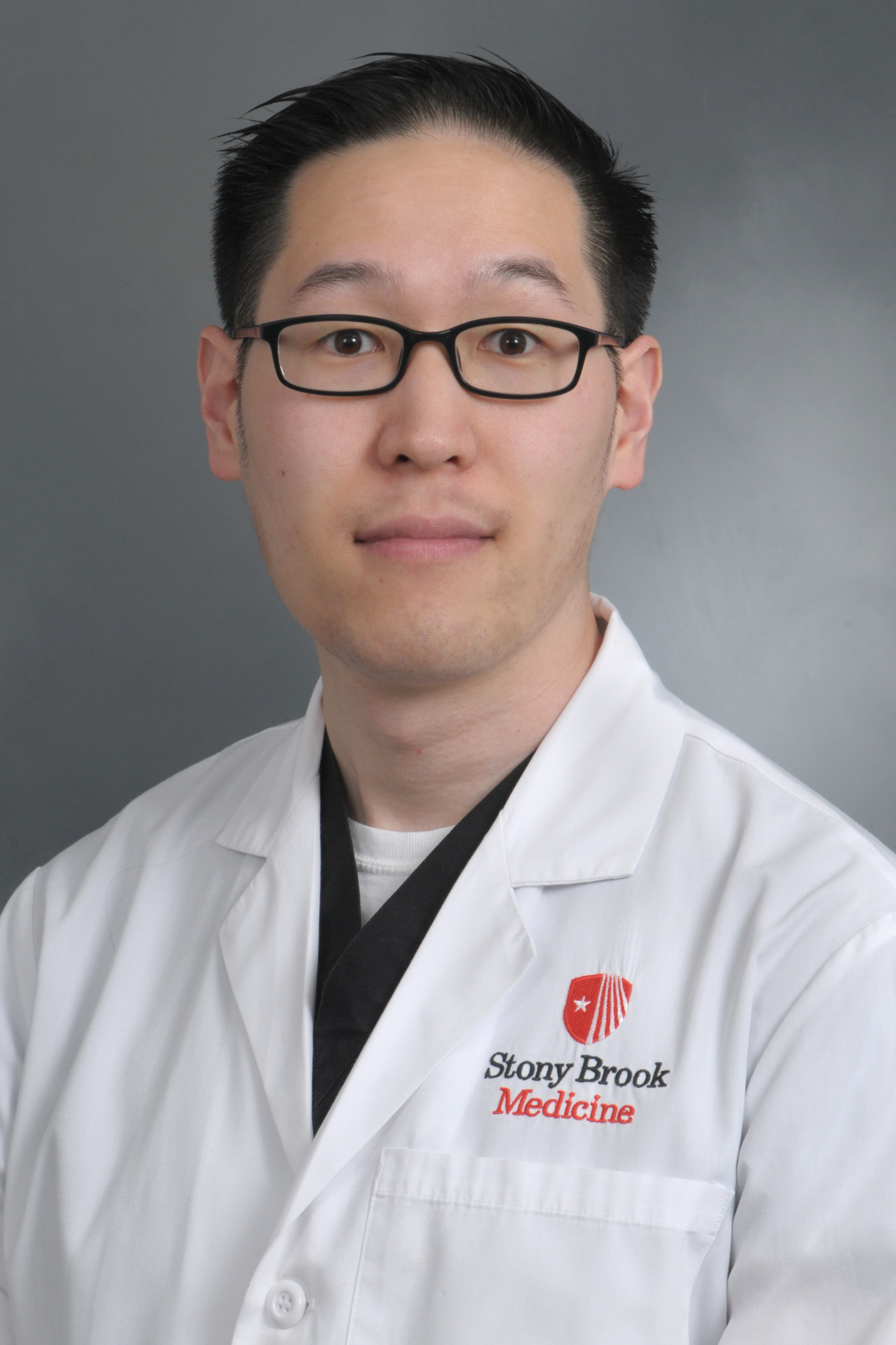
Isaak Heon, DO
Tarneem Darwish, MBBch
Please click here for more information on this fellowship.
Life on Long Island
 The State University of New York at Stony Brook offers academic programs in many undergraduate and graduate subjects. Lectures, concerts, art and photography exhibits, films, theatrical productions and athletic events on campus complement the diverse academic programs. Located on 1400 wooded acres on the North Shore of Long Island, in a region of coves, beaches and small historic villages, Stony Brook retains a distinctive New England flavor. The town and surrounding communities couple the charm of a rural setting, minutes from the Long Island Sound and Atlantic Ocean, with cultural, scientific, and industrial resources of the nation's largest city.
The State University of New York at Stony Brook offers academic programs in many undergraduate and graduate subjects. Lectures, concerts, art and photography exhibits, films, theatrical productions and athletic events on campus complement the diverse academic programs. Located on 1400 wooded acres on the North Shore of Long Island, in a region of coves, beaches and small historic villages, Stony Brook retains a distinctive New England flavor. The town and surrounding communities couple the charm of a rural setting, minutes from the Long Island Sound and Atlantic Ocean, with cultural, scientific, and industrial resources of the nation's largest city.
Application Process
Our program participates in the National Resident Matching Program (NRMP). The standard time schedule for the match is followed. The department abides strictly by the rules and regulations of the NRMP. Applicants are strongly encouraged to complete their application in late summer or fall prior to graduation. Our program’s deadline for application receipt is November 15. Applications, official transcripts, a Dean's letter, three letters of recommendation and USMLE scores must be submitted through the ERAS (Electronic Residency Application Service). All inquiries about the application process or training program should be directed to:
Kathleen Pitisi, MBA, C-TAGME
Residency Program Coordinator
Department of Pathology
University Hospital, Level 2, Room 749
Stony Brook, NY 11794
Phone: (631) 444-2224
Email: kathleen.pitisi@stonybrookmedicine.edu
Minimum Requirements:
Stony Brook University Hospital has established a policy regarding the selection and appointment of residents. Applicants must demonstrate successful completion of USMLE by the end of 2 attempts. Applicants should be a US citizen, permanent resident, have employment authorization identification, or have a J-1 visa sponsored by ECFMG. Stony Brook University Hospital does not sponsor H1B visas for GME training.
Please visit https://renaissance.stonybrookmedicine.edu/gme/application for more information.
Please visit http://medicine.stonybrookmedicine.edu/gme/policy and review the policy titled "Selection and Appointment of Residents, Fellows and Transfers."
Director, Residency Training Program
Randolph Hennigar, MD, PhD
University Hospital, Level 2
Stony Brook Medicine
Stony Brook, NY 11794-7025
Tel: (631) 444-2226
Fax: (631) 444-3419
Email: Randolph.Hennigar@stonybrookmedicine.edu
Other Educational Programs
In addition to the educational programs for medical students, residents and fellows, the department participates in the teaching of undergraduate and graduate students. Students in the School of Health Technology and Management program in Clinical Laboratory Sciences and Respiratory Therapy take HBP310 (Pathology) and students in the Physicians’ Assistant Program take HBP511. This course is also taken by graduate students in the Scholars in Biomedical Sciences (SBMS) Program. HBP533 (Immunology) is taken by graduate students (Masters and Doctoral) in biomedical graduate programs and selected undergraduate students, by permission of the instructors.


